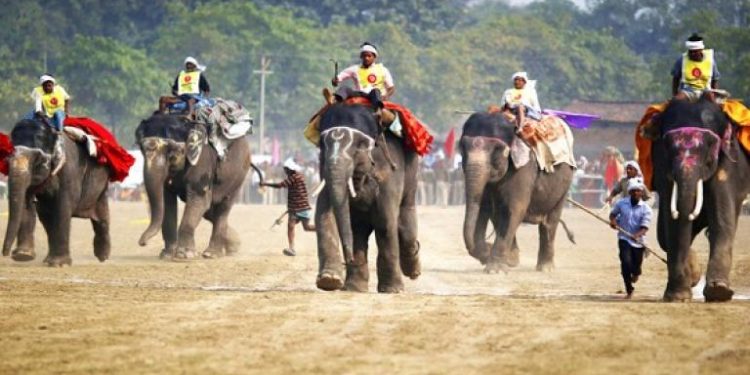by ANIRBAN ROY
As the Asia’s oldest and biggest cattle fair, the Sonepur fair began in Bihar’s Saran district on Monday, conservationists are worried that the fair may resume trade of elephants.
The fear is obvious because the Bihar government has constituted a nine-member committee to invite elephant owners from all over Bihar, Uttar Prdaesh and Jharkhand to the Sonepur Fair.
Arrival of elephants at Sonepur fair had stopped after a ban on sale in 2000. In 2018, only one elephant arrived at the fair.
Munmun Singh, a member of the committee said they are expecting at least 50 elephants at the Sonepur fair this year.
Sonepur Fair is held on the eve of Kartik Poornima in the month of November- December on the confluence of river Ganges and Gandak. This year, the fair will be from November 11 to December 11.
The Sonepur Fair existed when Chandragupta Maurya (340 – 297 BCE) used to buy elephants and horses across the river Ganges. The biggest attraction of the fair was the Haathi Bazaar where elephants used to be lined up for sale.
Elephants used to be openly sold at the fair. As per records, 92 elephants were sold in Sonepur Fair in 2001. The highest of 354 elephants were sold in 2004.
Most of the elephants sold in the Sonepur Fair were originally from Assam and Arunachal Pradesh, and had buyers from other states, mostly Kerala, Tamil Nadu and Karnataka.
Conservationists in Assam are now worried with the Bihar governments decision to invite elephants to the Sonepur fair. “This is illegal,” one of them, said.
“It would open a floodgate, and poachers would go all out to catch juvenile elephants from in the jungles in Assam and Arunachal Pradesh,” he added.
It was reported that 167 elephants were transported to Bihar and Uttar Pradesh from Assam between 2005 and 2008, and almost all of them were reportedly sold at the infamous Sonepur fair.
As per the record, 77 elephants were transported in 2006 from Assam, the highest in the conservation history of the state.
While captive elephants from Assam were the victims of the smuggling network, a significant number of them were caught from the wild.
The elephants caught from the wild were transported from Assam with forged documents and that too, in connivance with a section of corrupt forest officials.
But, as per the law, any such sale of elephants is illegal. The transportation could have been justified and supported with adequate documentation, but the sale was totally illegal.
As per She Wildlife (Protection) Act, 1972, sale, purchase or transfers of captive elephants from one person to another for monetary consideration or any other profitable gain, is totally illegal.
Unfortunately, the Assam Forest Department never tried to locate the elephants which were transported outside the state and did not try to bring them back. (This story first published in NE Now)




